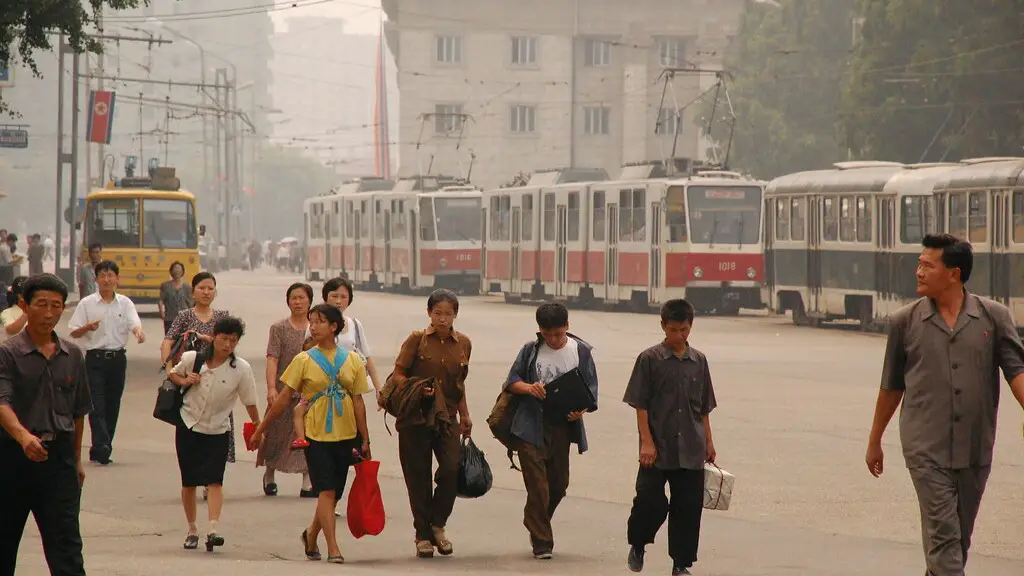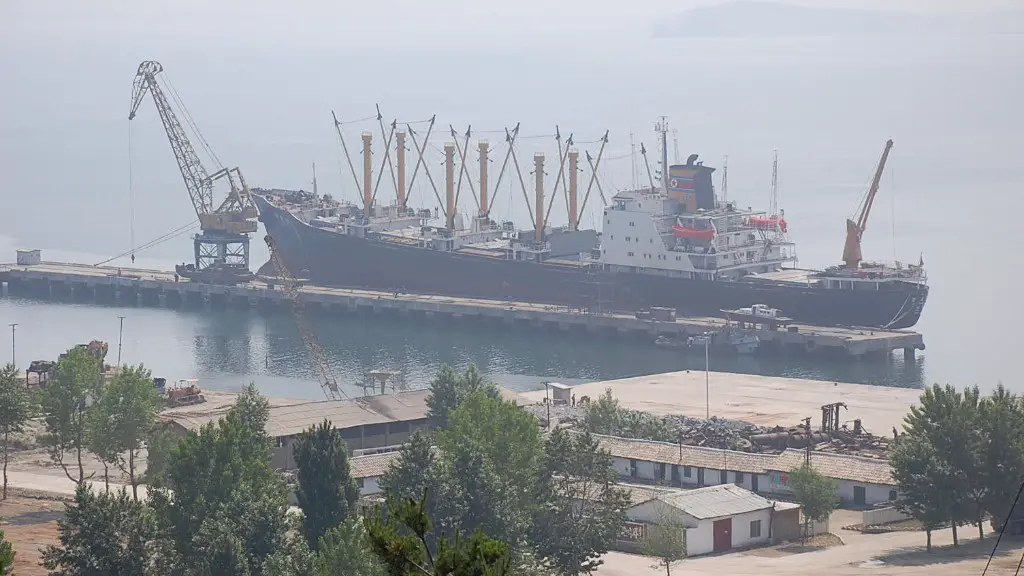Background Information
Sanctions are a measure of international pressure used as an attempt to persuade political and economic opponents to alter their behavior. Sanctions against North Korea are part of a wider international effort to demand that Pyongyang end its nuclear and ballistic missile programs and come into compliance with the UN Security Council resolutions. There are several types of sanctions, namely, economic, diplomatic, military, and humanitarian sanctions. These limitations can be imposed by the UN Security Council, individual countries, or groups of countries.
UN Sanctions
The UN Security Council has passed several resolutions authorizing the imposition of sanctions against North Korea. These have included asset freezes, prohibit shipments that contain prohibited goods, particularly those related to North Korea’s weapons program, and has tightened financial and banking sanctions. In addition, the UN’s resolutions have banned the sale of luxury goods to North Korea and tightened arms embargoes.
Individual Countries
Apart from the UN, individual countries have also imposed their own domestic sanctions on North Korea. For example, the United States has placed a series of progressively strict economic sanctions on North Korea, including banning imports and exports, freezing North Korean assets held in US banks, and prohibiting any US person or company from conducting any financial transaction with North Korean entities. The European Union has imposed a large number of restrictions, and has also paid close attention to any North Korean activities in its own countries and those of its neighbours.
Group Sanctions
The United Nations, United States, European Union, and several other countries have collectively imposed sanctions against North Korea. This includes a range of measures, such as restrictions on the flow of goods and services, the imposition of asset freezes, and the imposition of travel bans and trade embargoes. These measures have been designed to persuade North Korea to come into compliance with UN Security Council resolutions and end its nuclear and ballistic missile programs.
Repercussions
The sanctions imposed on North Korea have had serious repercussions for the people of North Korea. The sanctions have hindered and restricted the flow of goods and services in and out of the country, resulting in severe shortages of food and medical supplies, as well as rising prices for basic items. In addition, the sanctions have triggered rapid inflation, an increase in poverty, and the weakening of the country’s already fragile economy.
Effects on Peace Talks
The issue of sanctions against North Korea has been a major factor in the ongoing peace talks between the North and South Korean governments. North Korea has long demanded that any peace deal must include the lifting of sanctions, while South Korea and its allies have demanded concrete steps toward denuclearization before any sanctions are lifted. This stalemate has been the major impediment to achieving a peaceful resolution of the conflict between the two countries.
International Internventions
In 2008, an international agreement was reached to further sanctions on North Korea in an attempt to persuade its government to abandon its nuclear program. The agreement was made between the US, Japan, China, Russia and South Korea. This agreement has been successful in tightening the international embargo on North Korea and has been accompanied by increased cooperation among the five states in monitoring North Korean activities.
The Influence of Other Countries
In addition to the sanctions imposed by the UN and individual countries, North Korea has also been subject to economic sanctions from other countries, such as Iran and Syria. Although these countries do not have the economic clout of the UN, their sanctions have had a cumulative effect on North Korea and can be seen as a tool for international pressure.
Implications For The Future
The sanctions against North Korea have come under increasing scrutiny in recent years, and there is an ongoing debate about the efficacy of this policy of international pressure. While the sanctions have undoubtedly caused economic hardship for the people of North Korea, there is still no clear evidence that they have been successful in achieving their ultimate goal of convincing North Korea to abandon its nuclear program.
Economic Recovery
The impact of the sanctions on North Korea’s economy is difficult to assess accurately, as there are too many factors at play. However, it is clear that the sanctions have had a cumulative effect over time, with the long-term consequence being an economic stagnation. In recent years, there have been tentative signs of economic recovery, with reports of rising wages, increased investment, and improvements in the standard of living.
Reliance On China
The economic sanctions have had a major impact on North Korea’s reliance on China for economic aid. China is North Korea’s largest trading partner and a key source of economic assistance. Recent reports suggest that China may have eased some of its economic restrictions on North Korea, and that it is playing a growing role in facilitating the country’s economic recovery.
Impact On The Population
The long-term effect of the sanctions on North Korea’s population is difficult to measure. However, reports suggest that the sanctions have damaged the blighted North Korean economy, leaving some of the most vulnerable in society without adequate access to food and healthcare. In addition, the sanctions have made it increasingly difficult for the North Korean government to finance the education of its citizens, leaving them with few opportunities to acquire the skills and qualifications necessary to provide for themselves.
Failed Diplomacy
Although the sanctions have had an intensely negative effect on North Korea, they have not achieved the desired goal of forcing North Korea to abandon its nuclear program. This is primarily due to the fact that the sanctions have been imposed in a vacuum, with little in the way of diplomatic engagement between North Korea and its adversaries.
Role Of Engagement
The argument for increased engagement with North Korea, argues that dialogue and negotiation are the most effective way of achieving the desired result of denuclearising the Korean peninsula. This approach has been championed by a number of international figures, including former US President Jimmy Carter, who is known to have held several public meetings with North Korean officials.
Re-opening Nuclear Talks
There have been efforts to re-open negotiations between North Korea and the UN, but so far, these efforts have yielded little in the way of tangible results. However, in recent months, there has been a renewed diplomatic push to revive the six-party talks between North Korea and its five adversary states. There are signs that this effort could be successful, but as of yet, no concrete progress has been made.
Limitations of Sanctions
Some analysts argue that the sanctions against North Korea have only had a limited impact on the North Korean regime, and that they have failed to bring the country into compliance with UN resolutions. This is partly because the country continues to receive economic and military aid from its allies, such as China and Russia, and partly because the sanctions have failed to effectively target the regime’s top leadership, who are largely immune to their effects.




